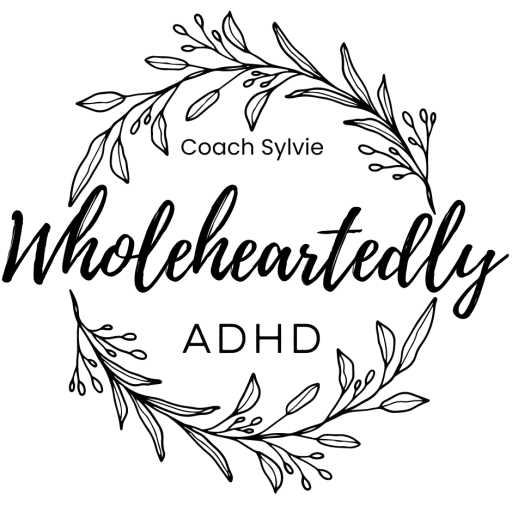Hormones & ADHD
Why you sometimes feel like a different person every damn week
Let’s be honest — if you’ve ever looked at your brain mid-meltdown and thought,
“Why am I like this today when I was totally fine yesterday?”
there’s a solid chance hormones were involved.
And if you’ve ever tracked your executive function, mood, emotional reactivity, and general life chaos in sync with your menstrual cycle and gone,
“Well damn, that’s a pattern,”
then hi, welcome to the intersection of ADHD and hormones, where consistency goes to die.
What’s actually happening?
Hormones are chemical messengers, and ADHD is a neurochemical disorder — so when your hormones fluctuate, they’re basically throwing confetti (or grenades) into your brain’s already precarious dopamine balance.
Especially estrogen, which plays a huge role in dopamine regulation. Estrogen drops? So does your focus, mood, memory, and motivation. Cool cool cool.
Hormone havoc may look like:
- Sudden dips in energy, focus, or mood for no obvious reason
- Feeling way more emotionally reactive at certain points in your cycle
- Brain fog so thick you forget your own name and why you walked into the room
- Productivity rollercoasters that make you feel like 3 different people in one month
- Increased RSD, anxiety, sensory sensitivity, or executive dysfunction
- ADHD meds seeming like they don’t work for a few days — then magically working again
(Hint: it’s probably not the meds. It’s the hormones. Again.)
A (very basic) crash course in the menstrual cycle + ADHD:
Week 1 (Menstruation): Estrogen starts low. You might feel slower, more tired, foggy. But hey, maybe a little less emotionally overwhelmed?
Week 2 (Follicular phase): Estrogen rises = more dopamine = you feel like a damn superhero. This is your high-functioning zone.
Week 3 (Ovulation into Luteal): Estrogen drops. Progesterone rises. You might feel more anxious, weepy, or overstimulated.
Week 4 (Late Luteal): Hell week. Focus tanks. RSD spikes. Meltdowns are real. Executive function is on sabbatical.
Other hormone-related curveballs:
- Puberty = total chaos. ADHD may become more obvious, especially in girls.
- Pregnancy = wild hormonal shifts that may help or wreck your brain depending on the day
- Perimenopause/Menopause = the ultimate hormonal boss level. ADHD symptoms often get worse or reappear — sometimes leading to a late diagnosis after decades of coping and masking.
So what helps?
You’re not powerless. Knowledge is power, and so is tracking your own rhythms. In the deep dive, we’ll get into tools and strategies — but for now:
- Track your symptoms along with your cycle (apps, journals, spreadsheets — whatever works)
- Talk to your doc about how hormonal birth control or HRT might be affecting your ADHD
- Schedule hard tasks during high-focus windows, and give yourself grace during low-energy days
- Prioritize rest, nutrition, hydration, and sleep (yes, again, I know)
- Know it’s not just you — hormonal ADHD hell is real, and it’s common
This section links to the full Hormones & ADHD Deep Dive, where we’ll explore:
- Why estrogen is ADHD’s frenemy
- How hormonal fluctuations impact meds, mood, and motivation
- The mental load of trying to plan your life around an inconsistent brain + inconsistent body
- Specific strategies for working with your cycle, not against it
- Navigating ADHD during perimenopause, menopause, puberty, and pregnancy
- Scripts for talking to doctors who don’t always understand this intersection
Hormones are wild. Brains are weird. You are not alone in feeling like a human lava lamp of emotions, energy, and executive dysfunction. We got you.
